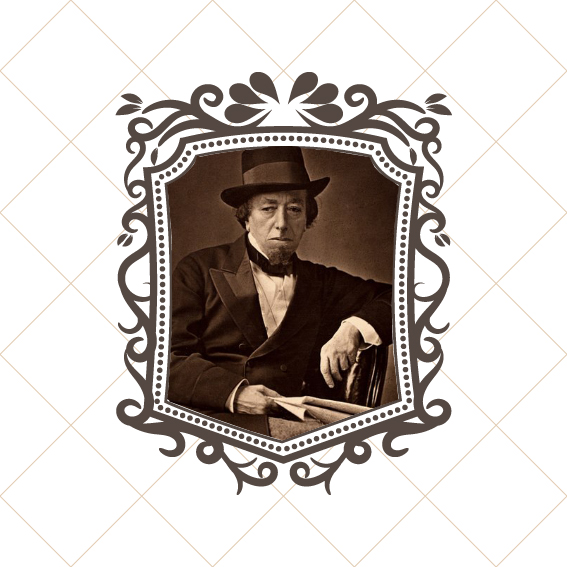|

|
|
Benjamin Disraeli, 1st Earl of Beaconsfield, KG, PC, FRS (21 December 1804 – 19 April 1881) was a British politician of the Conservative Party who twice served as Prime Minister of the United Kingdom. He played a central role in the creation of the modern Conservative Party, defining its policies and its broad outreach. Disraeli is remembered for his influential voice in world affairs, his political battles with the Liberal Party leader William Ewart Gladstone, and his one-nation conservatism or "Tory democracy". He made the Conservatives the party most identified with the glory and power of the British Empire. He is the only British prime minister to have been of Jewish birth. He was also a novelist, publishing works of fiction even as prime minister.
Disraeli was born in Bloomsbury, then a part of Middlesex. His father left Judaism after a dispute at his synagogue; young Benjamin became an Anglican at the age of 12. After several unsuccessful attempts, Disraeli entered the House of Commons in 1837. In 1846 the Prime Minister at the time, Sir Robert Peel, split the party over his proposal to repeal the Corn Laws, which involved ending the tariff on imported grain. Disraeli clashed with Peel in the House of Commons. Disraeli became a major figure in the party. When Lord Derby, the party leader, thrice formed governments in the 1850s and 1860s, Disraeli served as Chancellor of the Exchequer and Leader of the House of Commons.
|
“Action may not always bring happiness; but there is no happiness without action.”
-- Benjamin Disraeli
“Never apologize for showing feeling. When you do so, you apologize for the truth.”
-- Benjamin Disraeli
“One secret of success in life is for a man to be ready for his opportunity when it comes.”
-- Benjamin Disraeli
Featured products
The deluxe edition of this World Classic is collected from the Guardiand's and the Telegraph's "the 100 greatest novels of all time" list.
This World Classic is collected from the Guardiand's and the Telegraph's "the 100 greatest novels of all time" list.
iBoo Press House uses state-of-the-art technology to digitally reconstruct the work. We preserve the original format whilst repairing imperfections present in the aged copy. All titles are unabridged (100% Original content), designed with a nice cover, quality paper and a large font that’s easy to read.
and the Telegraph's "the 100 greatest novels of all time" list.
iBoo Press House uses state-of-the-art technology to digitally reconstruct the work. We preserve the original format whilst repairing imperfections present in the aged copy. All titles are unabridged (100% Original content), designed with a nice cover, quality paper and a large font that’s easy to read.






